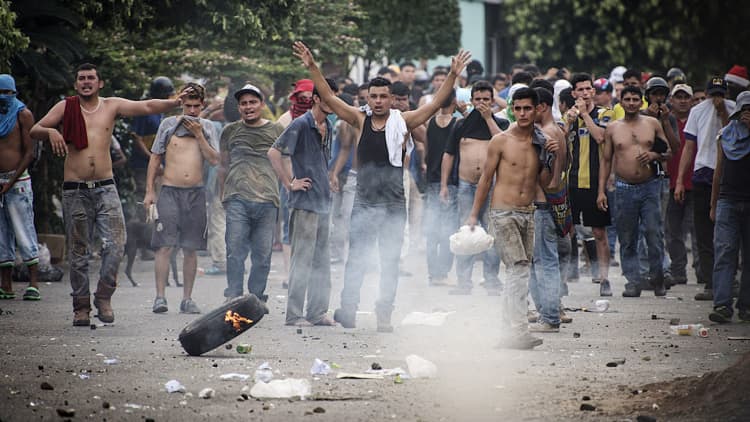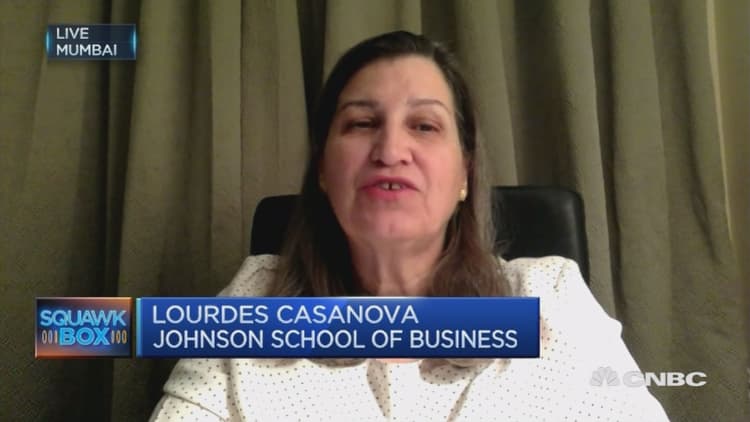Venezuelan President Nicolas Maduro may have finally gone too far, and now even some allies are turning against him.
Maduro and Venezuela's top court on Saturday walked back an earlier attempt to strip Venezuela's legislature of its
"The ruling — and the reaction it generated — underlined the fragmentations within the ruling party. These fragmentations are also seen within Chavismo and within the armed forces," said Diego Moya-Ocampos,

"Chavismo" refers to the political movement founded by Maduro's predecessor, leftist strongman Hugo Chavez, whose mismanagement of the Venezuelan economy left the country with staggering inflation and many of its people with too little to eat. Maduro has followed on Chavez's legacy by stifling dissent and steadily accumulating power to the executive branch.
It was a rare instance of the embattled Socialist president backing away from a move to increase his power. Opposition leaders dismissed the reversal as too little too late. They said the clarification issued by the judges only proved again that Maduro controls the courts, and there is no longer a real separation of powers in Venezuela.
He made a gamble last week, but it blew back. Now he's in a very tough spot because he doesn't have the strongman image and that's usually the first step in ousting a dictator.Monica de Bollesenior fellow, Peterson Institute for International Economics
The move sparked protests across the country and even led Venezuela's attorney general, Luisa Ortega, to surprise observers by rebuking the court on Friday. Ortega has been a long-running ally of both Maduro and Chavez.
Meanwhile, the Latin American trade bloc Mercosur over the weekend moved closer to possibly expelling Venezuela. The country was suspended from the group in December.
"He made a gamble last week, but it blew back. Now he's in a very tough
"The question is whether this could unite the opposition," she said.
Venezuela has been teetering
All that said, while the court backed off its decision to fully take over the legislative branch, it left in place sweeping new authority for Maduro to cut oil deals on behalf of PDVSA, the state-run oil company, without congressional approval.
PDVSA has been hemorrhaging cash since late
— The Associated Press contributed to this report.
Watch: Venezuela's cash problem



